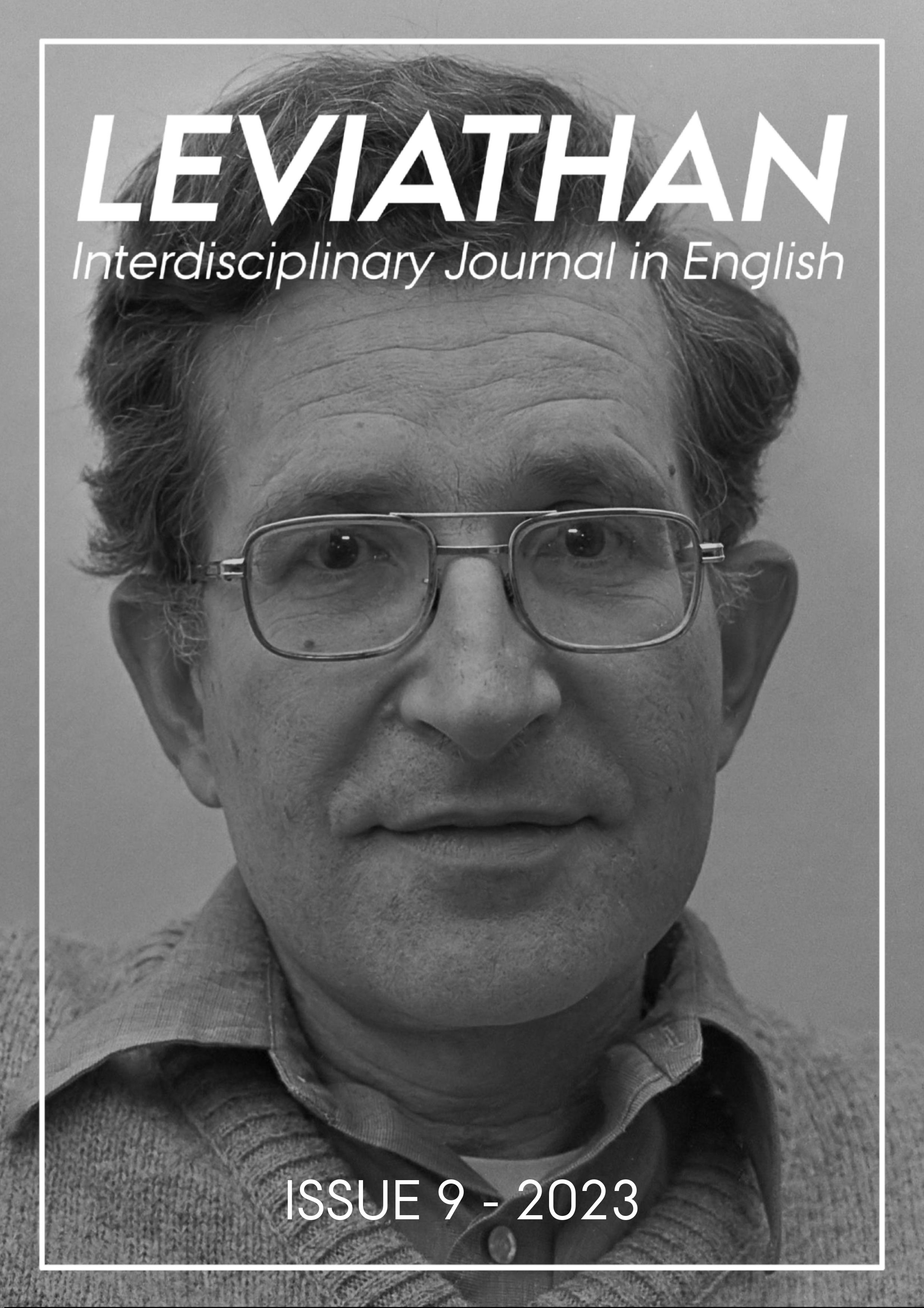Musical Aptitude and the Acquisition of Pitch and Duration in L2 Vowels
DOI:
https://doi.org/10.7146/lev92023136283Keywords:
musical aptitude, linguistics, foreign-accented speech, vowel acquisition, second-language acquisitionAbstract
Music and language have been believed to be processed similarly in the brain. Studies have compared the processing of vowels and music, as they share spectral and temporal features such as pitch and timing. When comparing music and language skills the question arises whether music skills are inherent, measured with aptitude, or acquired, measured with experience. This article focused on musical aptitude studies. It was found that musical aptitude predicted non-native speech-sound processing better than musical experience. It is proposed that music and language skills are interconnected as greater overlaps in neural processing of music and speech were found for musicians than nonmusicians, and as individuals with no musical experience but with high L2 production skills were found to have high musical aptitude. Furthermore, spectral sensitivity was found to be the primary partial mediator of the link between musicality and non-native speech-sound processing, with temporal sensitivity having no role.
References
Chobert, Julie, and Mireille Besson. 2013. “Musical Expertise and Second Language Learning.” Brain Sci 3 (2): 923-940. https://doi.org/10.3390/brainsci3020923
Christiner, Markus, and Susanne Reiterer. 2016. “Music, song and speech: A closer look at the interfaces between musicality, singing and individual differences in phonetic language aptitude.” In Cognitive Individual Differences in Second Language Processing and Acquisition, edited by Gisela Granena, Daniel O. Jackson, and Yucel Yilmaz, 131-156. Amsterdam/Philadelphia: John Benjamins Publishing Company. https://ebookcentral-proquest-com.ez.statsbiblioteket.dk/lib/asb/detail.action?docID=4753485.
Fitzgerald, Kaitlin, and Juanita Todd. 2020. “Making Sense of Mismatch Negativity.” Frontiers in Psychiatry 11: 468-468. https://doi.org/10.3389/fpsyt.2020.00468.
Gottfried, Terry L. 2007. “Music and Language Learning.” In Language Experience in Second Language Speech Learning: In honor of James Emil Flege, edited by Ocke-Schwen Bohn and James J. Munro, 221-238. Amsterdam: John Benjamins Publishing Company. https://ebookcentral-proquest-com.ez.statsbiblioteket.dk:12048/lib/asb/reader.action?docID=622748
Kempe, Vera, Dennis Bublitz, and Patricia J. Brooks. 2015. “Musical ability and non-native speech-sound processing are linked through sensitivity to pitch and spectral information.” British Journal of Psychology 106 (2): 349-366. https://doi.org/10.1111/bjop.12092
Kraus, Nina, and Bharath Chandrasekaran. 2010. “Music training for the development of auditory skills.” Nature Reviews Neuroscience 11 (8): 599-605. https://doi.org/10.1038/nrn2882
Kraus, Nina, Erika Skoe, Alexandra Parbery-Clark, and Richard Ashley. 2009. “Experience-induced Malleability in Neural Encoding of Pitch, Timbre, and Timing: Implications for Language and Music.” Annals of the New York Academy of Sciences 1169 (1): 543-557. https://doi-org.ez.statsbiblioteket.dk:12048/10.1111/j.1749-6632.2009.04549.x
Law, Lily N.C., and Marcel Zentner. 2012. “Assessing Musical Abilities Objectively: Construction and Validation of the Profile of Music Perception Skills.” PLoS ONE 7 (12). https://doi.org/10.1371/journal.pone.0052508
Lidji, Pascale, Pierre Jolicæur, Régine Kolinsky, Patricia Moreau, John F. Connolly, and Isabelle Peretz. 2010. “Early integration of vowel and pitch processing: A mismatch negativity study.” Clinical Neurophysiology 121 (4): 533-541.
Luck, Steven J. 2014. An Introduction to the Event-Related Potential Technique. 2nd ed. Boston: The MIT Press. https://ebookcentral-proquest-com.ez.statsbiblioteket.dk/lib/asb/reader.action?docID=3339822&ppg=1
Milovanov, Riia, Minna Huotilainen, Paulo A.A. Esquef, Paavo Alku, Vesa Välimäki, and Mari Tervaniemi. 2009. “The role of musical aptitude and language skills in preattentive duration processing in school-aged children.” Neuroscience letters 460 (2): 161-165. https://doi.org/10.1016/j.neulet.2009.05.063
Milovanov, Riia, Minna Huotilainen, Vesa Välimäki, Paulo A.A. Esquef, and Mari Tervaniemi. 2008. “Musical aptitude and second language pronunciation skills in school-aged children: Neural and behavioral evidence.” Brain research 1194: 81-89. https://doi.org/10.1016/j.brainres.2007.11.042
Milovanov, Riia, Päivi Pietilä, Mari Tervaniemi, and Paulo A.A. Esquef. 2010. “Foreign language pronunciation skills and musical aptitude: A study of Finnish adults with higher education.” Learning and Individual Differences 20 (1): 56-60. https://doi.org/10.1016/j.lindif.2009.11.003
Nardo, Davide and Susanne Maria Reiterer. 2009. “Musicality and phonetic language aptitude.” In Language Talent and Brain Activity, edited by Grzegorz Dogil and Susanne Maria Reiterer, 213-255. De Gruyter Mouton. https://doi-org.ez.statsbiblioteket.dk/10.1515/978311021549
Schulze, Katrin, Stefan Zysset, Karsten Mueller, Angela D. Friederici, and Stefan Koelsch. 2011. “Neuroarchitecture of Verbal and Tonal Working Memory in Nonmusicians and Musicians.” Human Brain Mapping 32 (5): 771-783. https://doi.org/10.1002/hbm.21060
Schulze, Katrin, and Stefan Koelsch. 2010. “Working Memory for Speech and Music.” Annals of the New York Academy of Sciences 1251 (1): 229-236. https://doi-org.ez.statsbiblioteket.dk/10.1111/j.1749-6632.2012.06447.x
Suzukida, Yui. 2021. “The Contribution of Individual Differences to L2 Pronunciation Learning: Insights from Research and Pedagogical Implications.” RELC Journal 52 (1): 48-61. https://doi.org/10.1177/003368822098765.
Talamini, Francesca, Massimo Grassi, Enrico Toffalini, Rosa Santoni, and Barbara Carretti. 2018. “Learning a second language: Can music aptitude or music training have a role?” Learning and Individual Differences 64: 1-7. https://doi.org/10.1016/j.lindif.2018.04.003.
Downloads
Published
How to Cite
Issue
Section
License
Copyright (c) 2023 Leviathan: Interdisciplinary Journal in English

This work is licensed under a Creative Commons Attribution-NonCommercial-NoDerivatives 4.0 International License.
Attribution-NonCommercial-NoDerivatives 4.0 International (CC BY-NC-ND 4.0)
You are free to share (copy and redistribute the material in any medium or format).
However:
You may not use the material for commercial purposes.
You must give appropriate credit, provide a link to the license, and indicate if changes were made. You may do so in any reasonable manner, but not in any way that suggests the licensor endorses you or your use.
If you remix, transform, or build upon the material, you may not distribute the modified material.
You may not apply legal terms or technological measures that legally restrict others from doing anything the license permits.





